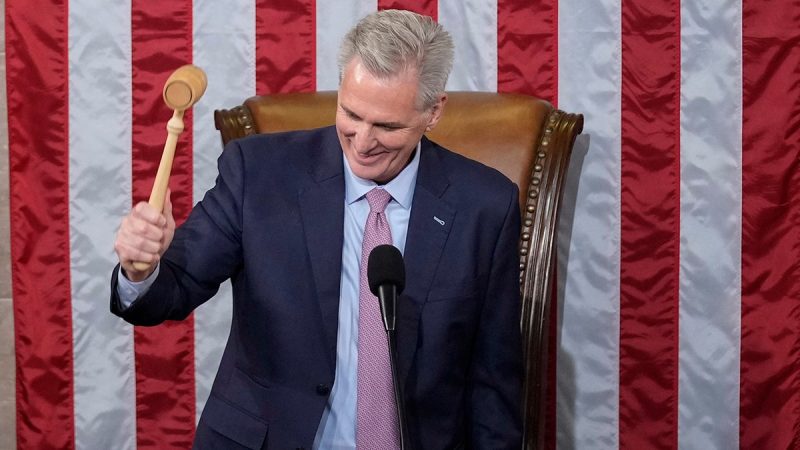
Republicans weigh rules change to avoid House floor ‘chaos’ during speaker vote
House Republicans walked out of a nearly three-hour conference meeting on Monday night united over a sense of urgency in needing to pick a new speaker — and little else.
One of the most prominent debates to surface, less than 72 hours before the Republicans are set to gather behind closed doors for their speaker election, is whether to raise the threshold needed to put a candidate on the House floor.
‘I don’t think we ought to be changing rules in the middle of an election. I just don’t think that’s wise. I also think there is some wisdom of having members have their surnames called out, and have to…declare it to everybody,’ said Rep. Steve Womack, R-Ark., who is backing Majority Leader Steve Scalise for Speaker. ‘Secret ballot accomplishes very little, you know, other than gives you an opportunity to freely express yourself without being made known.’
But Rep. Dusty Johnson, R-S.D., leader of the pragmatic Main Street Caucus, said he was leaning in favor of the change but had not made up his mind. ‘If it’s going to take us four days to get to 218, I think everybody should agree that burning that time on the floor is suboptimal.’ Johnson has not publicly said who he will support yet.
House Republicans are set to gather on Wednesday morning to elect their candidate for speaker via secret ballot. Fox News Digital was told that House GOP leaders are weighing an amendment to the current House rules that would temporarily raise the threshold needed to win from a simple majority to 217 or 218 votes.
Ex-Speaker Kevin McCarthy, R-Calif., was elected in a full House vote after 15 public rounds across three days after being selected behind closed-doors via simple majority of the House GOP. He was removed last week by eight members of his own party and House Democrats.
Multiple lawmakers indicated to Fox News Digital after their closed-door Monday meeting that the vote on raising that threshold was expected before the closed-door election.
Republican Study Committee Chair Kevin Hern suggested he was learning in favor of the rule. Hern argued that the unfolding crisis in the Middle East was all the more reason for Congress to appear united in moving forward.
‘The American people are pretty weary right now on chaos, if you will. I don’t know that it’s healthy for the American morale to see chaos in the Middle East, chaos in Israel, and then chaos here,’ he said.
McCarthy ally Rep. John James, R-Mich., said he signed onto a GOP letter requesting the rule change to ‘very quickly get back to things that most Americans are concerned with.’
‘We need to secure our border, we need to address our debt, we need to address our spending – and in order to do that, we have to make sure that before we go to the floor, we have enough votes to have a Republican Speaker,’ he said.
But Rules Committee Chairman Tom Cole, R-Okla., who also supported McCarthy as speaker, said lawmakers shouldn’t need to change conference rules to put on a united public front.
‘We did not always go in conference with person who won the election, but I never dreamed of not voting for that person on the floor. No matter how strongly I disagreed with them, the conference made the decision and they deserve my support to be speaker. We should get back to that,’ he said.
His fellow freshman Rep. Nick LaLota, R-N.Y., did not rule out the idea but suggested putting a seven-day limit on the closed-door vote before forcing it onto the floor.
‘It’ll probably lend itself to some unity in the conference, but I think it’s also prudent to have some sort of escape hatch if that strategy doesn’t result in a bonafide speaker,’ LaLota said.
Meanwhile Rep. Max Miller, R-Ohio, who is backing Judiciary Chairman Jim Jordan, R-Ohio, for speaker, also threw into the mix a suggestion to give lawmakers an extra week before voting for speaker.
‘I don’t think we’re gonna get a speaker this week at all,’ Miller said.
